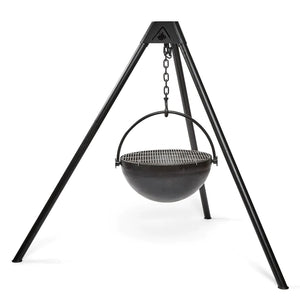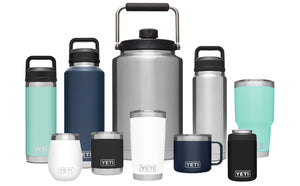Agitator washers vs. impeller washers: what's the difference?
Keep laundry day moving — for the way you care
Agitators and impellers are both found in top-loading washing machines, but they move — and clean clothes — in two distinct ways.
Traditional agitators are tall spindles, vaned or finned, in the center of the wash basket that twist (or agitate) back and forth, rubbing against clothes to help break down loose soils. Impellers, on the other hand, are low-profile cones or discs that spin/rotate to rub clothes against each other to get them clean.
So what style will help you keep laundry day moving? Learn more about the difference between washers with agitators and washers with impellers — and how they make all the difference in the way you care.
How does an agitator washer clean?
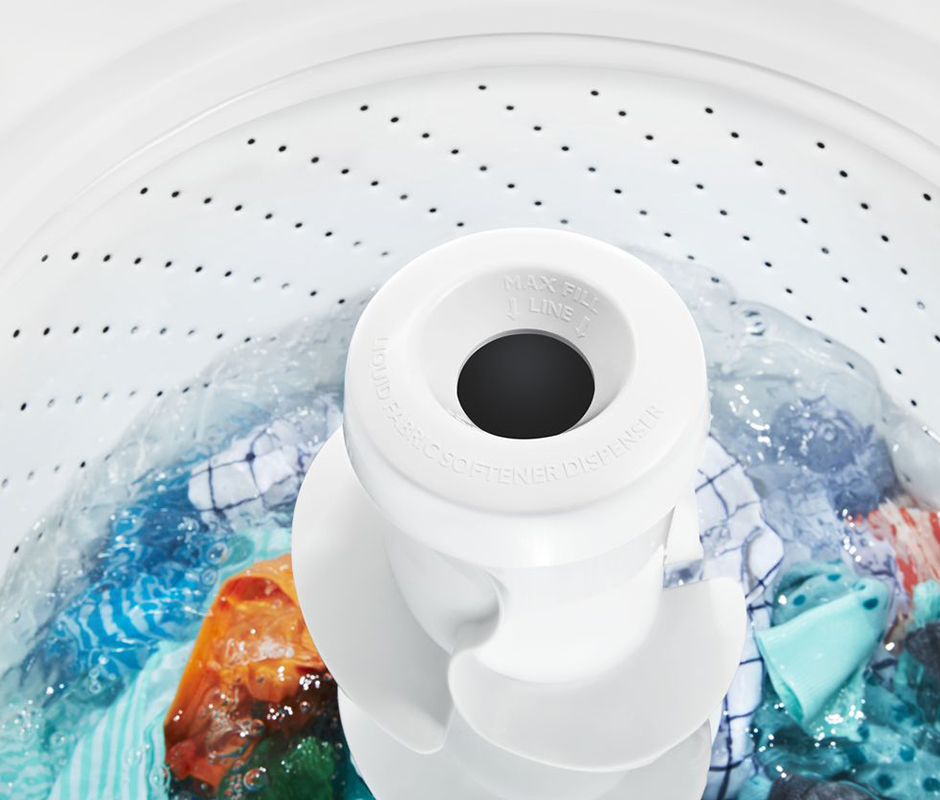
A washing machine with an agitator is probably the style you’re most familiar with. Despite what some people think, advances in washer technology ensure that agitators can take on your toughest loads — without being tough on your clothes.
That job belongs to your family. And between home-run mud stains, early-morning coffee spills and tough gym sessions, these appliances have their work cut out for them. That’s why they typically provide multiple wash motions for a good clean, including:
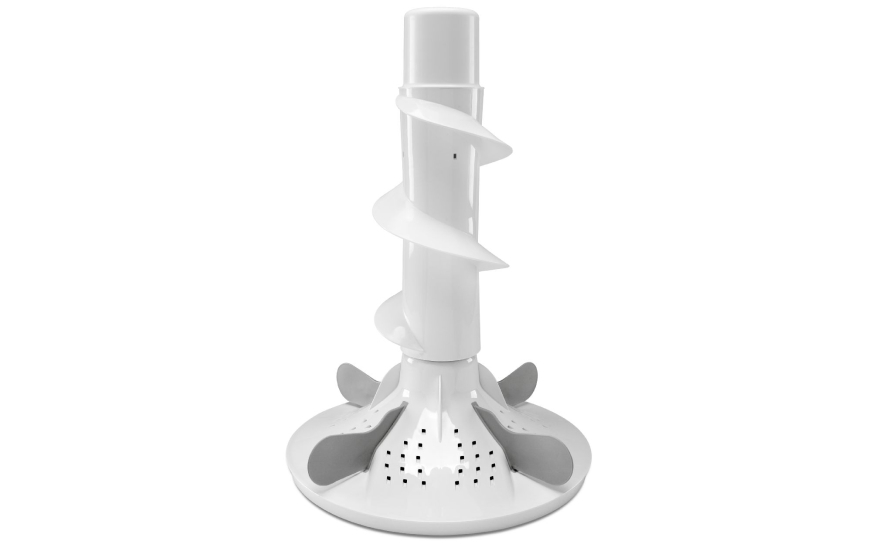
Spraying Action
Soaks clothes with water recirculated from the wash/rinse cycle.
Wash Basket Action
Rotates for a hard-hitting clean.
Agitator Action
Rubs against clothes to help break down stains and loosen soils.
How does an impeller washer clean?
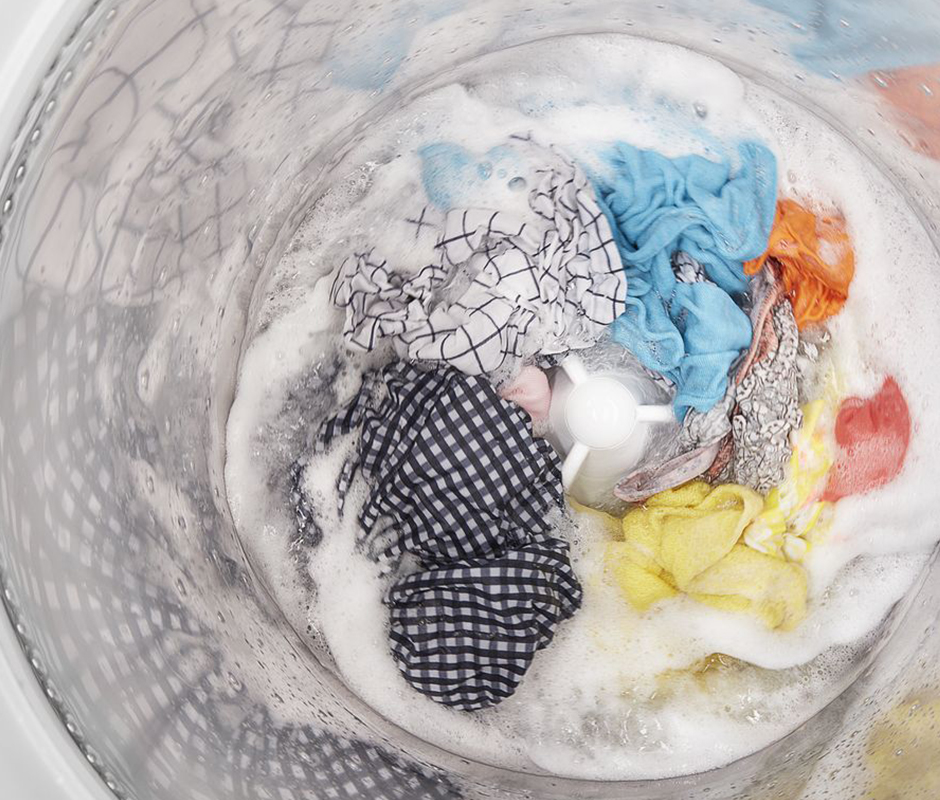
A washing machine with an impeller uses less motion, and water, than a washer with an agitator. Designed so laundry has more room to move, it drives clothes from the outer rim of the wash basket to the center, using a small amount of water to optimize the friction. This is what helps deliver a gentle, efficient, yet thorough clean.
They also typically feature multiple wash motions, including:
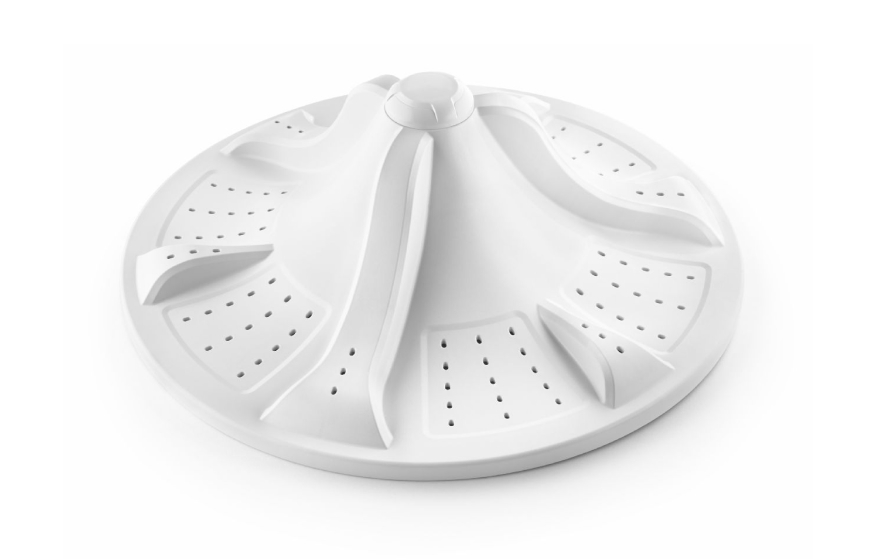
Spraying Action
Soaks clothes with water recirculated from the wash/rinse cycle.
Wash Basket Action
Rotates for a deep clean.
Impeller Action
Uses low-profile cones, wheels, fins or discs that spin to gently rub clothes against each other.
Agitator vs. impeller: How do they stack up?
Washer with an agitator
- Agitator rubs against clothes to remove and rinse away loose soils
- Shorter wash times
- Familiar functionality
Washer with an impeller
- Impeller rubs clothes against each other to deliver a thorough, gentle clean
- Shorter dry times due to the high spin speeds that wick away more moisture
- More room in the wash basket for bulky articles and easy loading/unloading
Care Tip
Both washing machines with agitators and impellers function optimally when they’re properly loaded. For both, make sure the clothes are placed evenly around the central spindle or wash plate so the wash basket is balanced. Unbalanced loads aren’t cleaned as effectively or can damage the machine.
What’s right for your family?
So which one’s got the moves that are right for your family: a washer with or without an agitator? With cleaning performance, energy efficiency, capacity, innovation and convenience being roughly equal, your decision really hinges on your personal preference. That’s it.
Whether you’re sanitizing baby clothes, cleaning mustard out of your favorite jeans or making sure her leotard is ready for ballet class tomorrow, both an agitator or impeller model can help you get the job done.
Check out our agitator and impeller washer top picks, or shop all top-loading washers. To learn more about top-load vs. front-load washers, read this.







